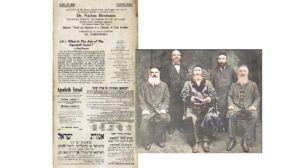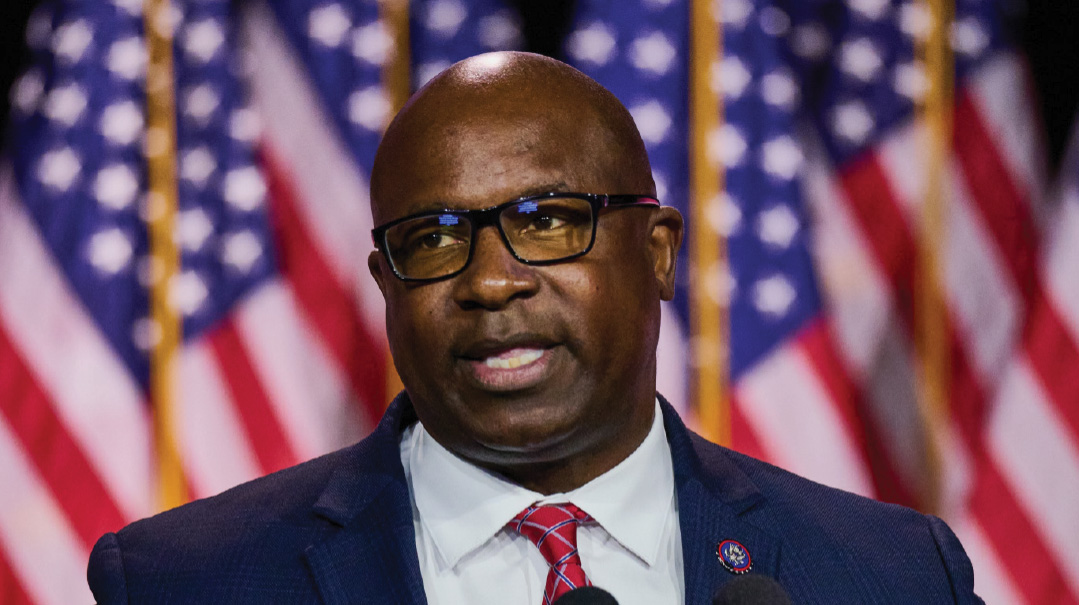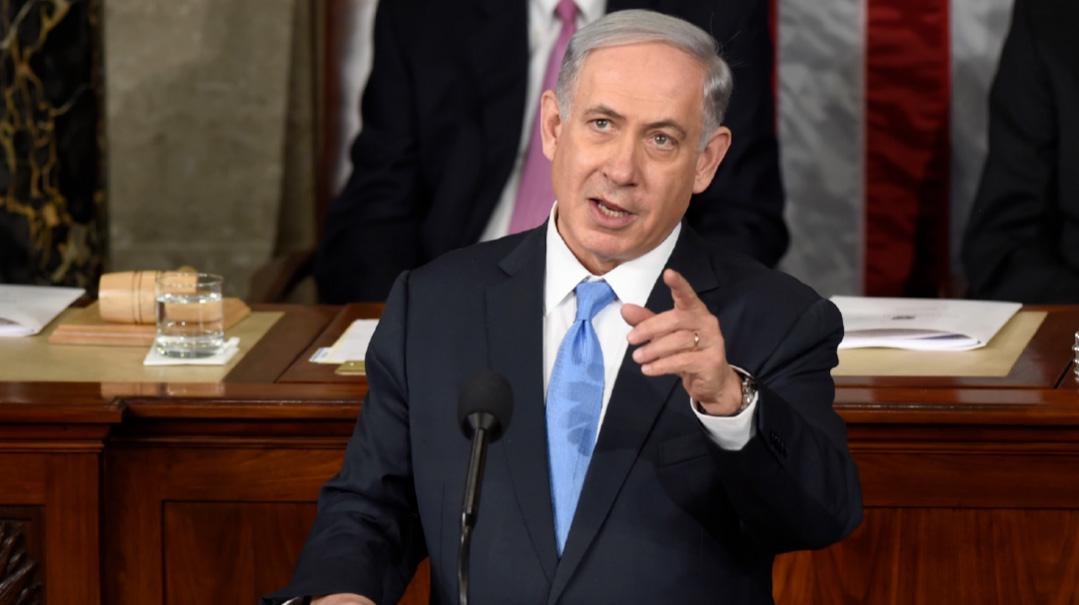Reviewing the National Review

"I fear the genie is out of the bottle and nobody can put it back again”

By the time many of you read this, the 40 world leaders who visited Jerusalem this week to commemorate the 75th anniversary of the liberation of Auschwitz — and International Holocaust Remembrance Day — at special Knesset and Yad Vashem ceremonies will have come and gone.
Will they take to heart the words spoken and tears shed at this solemn assembly, and commit to throwing the weight of the relevant authorities in their lands behind the battle against the scourge of modern-day anti-Semitism that threatens Jewish survival?
Or would the following statement, once made by the late Professor Robert Wistrich, be just as valid today? “Dead Jews, it would seem, can do no wrong. But living Jews bent on ensuring their survival are another matter entirely,” declared Wistrich.
That quote appeared in our Jewish Geography section in Issue #66, in July 2005. Cynical as it sounded, Wistrich didn’t have a contemptuous bone in his body. As head of Hebrew University’s Sassoon Center for the Study of Antisemitism and editor of its Antisemitism International journal, he had just published a new work, European Anti-Semitism Reinvents Itself, in which he asserted that Israel’s emergence as a powerful military and economic power from the ashes of the Holocaust “troubled the European mind.”
Five years later, Wistrich waxed philosophical in an interview with my colleague Yonoson Rosenblum, quoting the 20th-century Catholic theologian Jacques Maritain: “Israel is to be found at the very heart of the world’s structure, stimulating it, exasperating it, moving it. Like an alien body, like an activating ferment into the mass, it gives the world no peace, it bars slumber, it teaches the world to be discontented and restless, as long as the world has not its G-d, it stimulates the movement of history. It is the vocation of Israel which the world hates.”
If I were to parse that quote, I would ask if Maritain meant that this alien body of Jews exasperates anti-Semites, or that anti-Semites choose to get exasperated by us.
The National Review’s online edition stepped into this minefield of a question last week with publication of a piece entitled “Anti-Semitic Attacks Shine Spotlight on Long-Simmering Tri-State Tensions.” Written by Zachary Evans, the article quoted an anonymous source comparing certain Jews to locusts. The article was even more disturbing coming from the media outlet founded in 1955 by the iconic William Buckley Jr., a founder of the modern-day conservative political movement. Buckley displayed determination in challenging entrenched anti-Semitism among the Republican Party elite and showed zero tolerance for any whiff of anti-Semitic thought in the National Review.
As to Zachary Evans, he is described as “a news writer for National Review Online, an IDF veteran and a trained violist.”
While Evans penned a well-researched piece in 2019 tracing the roots of institutionalized anti-Semitism in New York City’s black community from the 1960s to today, he struck several sour notes in last week’s piece.
Most objectionable was the infamous anonymous quote from, in Evans’s words, “A Jewish but not ultra-Orthodox resident of upstate New York [who] asked not to be named for fear of retribution by the ultra-Orthodox community.”
The quote: “Many in the community look at the Hasidim as locusts, who go from community to community just stripping all the resources out of it.” Evans only made matters worse responding to the backlash by saying that his decision to include it “is no endorsement of its language or argument,” adding later that “it is extremely vital to understand what people in the area are feeling in order to defuse any misunderstandings or ill-will among observant Jews and their neighbors.”
I beg to differ.
First, inflammatory quotes don’t defuse misunderstandings, they create an endless cycle of new clashes. At NYU, where I majored in journalism in the 1970s, I was trained that if a source, in the heat of a moment, expressed himself libelously, or in a way that could damage the public interest or his own career, it was the reporter’s responsibility to explain that to the source and give him the opportunity to walk it back.
Unfortunately, showing that type of responsibility is extinct in today’s “gotcha” climate, where the more colorful the quote, the more likely it is to be featured prominently.
Second, anonymous quotes should be used sparingly. There are times when it is imperative to conceal a source’s identity. The fear of retaliation, as expressed by Evans’s source, is indeed a valid reason, but should someone who refers to any race, color, creed, or religion in derogatory terms be afforded cover and credibility?
In the paragraph that preceded that quote, Evans’s narrative read as follows: “The ultra-Orthodox population is also a heavy user of government resources such as Medicaid and food stamps. This is due to the fact that many of the men either don’t work or make low salaries, choosing instead to devote their time to studying religious texts.”
That narrative itself is heavily problematic. The term “heavy users” is more often associated with heroin addicts, and not families who legally qualify for programs like food stamps, whose $58 billion a year budget helps feed more than 40 million needy Americans.
Guess what? The vast majority of these tens of millions of people are not chassidic or ultra-Orthodox.
There is also an implied criticism of men who devote their formative years to Torah study. Similar pieces in other publications have taken cheap shots at men who “delve into ancient texts” or “are bent over dog-eared pages of the Talmud.” You don’t see the same criticism leveled at Harvard Law students who pull all-nighters cramming for final exams.
The flaws in the National Review Online article detracted from what could have been a more constructive piece, in which Evans rejected the linkage between out-migration of Jews to the recent heinous murders in Jersey City and Monsey. He did fairly demarcate both the battle lines and the main players in the ongoing zoning disputes between Jews and longstanding residents of rural upstate New York neighborhoods.
With the media driving the conversation as it does, instances of sloppy journalism need to be called out, like it was in this case. With the rising number of “ultra-Orthodox” media outlets, there should be enough resources to build a monitoring system, in the mold of Honest Reporting and CAMERA, to track biased coverage and rebut it.
Having said that, they will be busier than they could ever imagine. In my last interview with Professor Wistrich, conducted in September 2014, some eight months before he passed away, he had just returned from a meeting in Paris with then-president Francois Hollande to discuss France’s rising tide of anti-Semitism. While Wistrich said the government was taking the problem far more seriously than they once did, he sounded a pessimistic note. “It’s been a belated awakening,” he said. “I don’t know if it can change matters fundamentally. I fear the genie is out of the bottle and nobody can put it back again.”
Do the leaders who stood at solemn attention in Jerusalem this week in honor of the six million Jews killed in the Holocaust care enough to even make the effort? Or are so many of them wrapped up in their own political survival that they can’t see past their own faces in the mirror?
(Originally featured in Mishpacha, Issue 795)
Oops! We could not locate your form.













